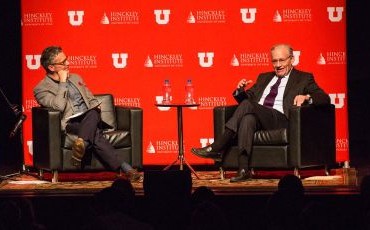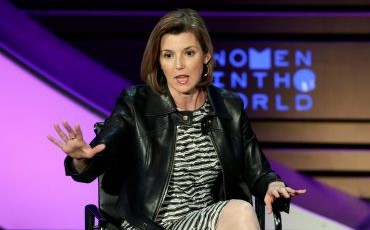Global Economist, Member of the United Kingdom House of Lords, Executive at Versaca Investments, NYT Bestselling Author of "Edge of Chaos"
Dambisa Moyo Biography
Dambisa Moyo is a member of the United Kingdom’s House of Lords sitting as Baroness Moyo of Knightsbridge . She is a principal of Versaca Investments - a family office focused on growth investing globally. She serves on a number of global corporate boards including Chevron, and the Oxford University Endowment Investment Committee. She is a member of The American Academy of Arts and Sciences.
Dr. Moyo is respected for her unique perspectives, her balance of contrarian thinking with measured judgment, and her ability to turn economic insight into investible ideas.
Dr. Moyo is the author of five bestselling books on the global macroeconomy and geopolitics. She holds a PhD in economics from Oxford University and a Masters degree from Harvard University.
Dr. Moyo was named to the list of TIME’s "100 Most Influential People" in the world; writes for the Financial Times, WSJ, Barron's, and Harvard Business Review. Dr. Moyo is a pre-eminent thinker whose insights empower key decision-makers in strategic investment and public policy.
Contact a speaker booking agent to check availability on Dambisa Moyo and other top speakers and celebrities.
Dambisa Moyo Speaking Topics
-
GLOBAL MACROECONOMICS
External Markets
- Capital Account
- Cross Border Flows
- Current Account
- Foreign Direct Investment (FDI)
- Reserves
- Trade
Fiscal Policy
- Debt
- Deficits
- Government Spending
- Taxes
Monetary Policy
- Interests Rates
- Money Supply & Demand
- Quantitative Easing
- Reserve Requirements
Real Economy
- Capital Spending
- Consumption
- GDP
- Growth
- Inflation
- Labor Markets
- Unemployment
- Wages & Wage Growth
-
GEOPOLITICS
- Conflicts & Instability
- Elections
- International Regulations
- Public Policy

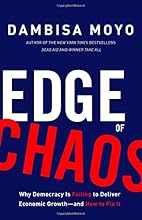
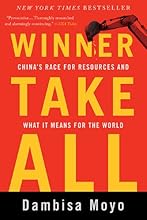
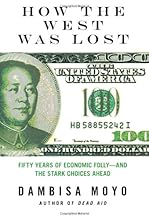
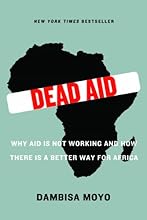
-
How do I book Dambisa Moyo to speak at my event?
Our experienced booking agents have successfully helped clients around the world secure speakers like Dambisa Moyo for speaking engagements, personal appearances, product endorsements, or corporate entertainment since 2002. Click the Check Availability button above and complete the form on this page to check availability for Dambisa Moyo, or call our office at 1.800.698.2536 to discuss your upcoming event. One of our experienced agents will be happy to help you get speaking fee information and check availability for Dambisa Moyo or any other speaker of your choice. -
What are the speaker fees for Dambisa Moyo
Speaking fees for Dambisa Moyo, or any other speakers and celebrities, are determined based on a number of factors and may change without notice. The estimated fees to book Dambisa Moyo are available upon request for live events and available upon request for virtual events. For the most current speaking fee to hire Dambisa Moyo, click the Check Availability button above and complete the form on this page, or call our office at 1.800.698.2536 to speak directly with an experienced booking agent. -
What topics does Dambisa Moyo speak about?
Dambisa Moyo is a keynote speaker and industry expert whose speaking topics include Author, Business, Business Leadership, Celebrity, Creativity, E-Commerce, Economy, Environment, Female Leadership, Finance, FinTech, Futurism, Geopolitics, Influential Women, Innovation, Leadership, Political, Sustainability, TED, Women, Women in Business, Women in Tech, World Affairs -
Where does Dambisa Moyo travel from?
Dambisa Moyo generally travels from London, UK, but can be booked for private corporate events, personal appearances, keynote speeches, or other performances. For more details, please contact an AAE Booking agent. -
Who is Dambisa Moyo’s agent?
AAE Speakers Bureau has successfully booked keynote speakers like Dambisa Moyo for clients worldwide since 2002. As a full-service speaker booking agency, we have access to virtually any speaker or celebrity in the world. Our agents are happy and able to submit an offer to the speaker or celebrity of your choice, letting you benefit from our reputation and long-standing relationships in the industry. Please click the Check Availability button above and complete the form on this page including the details of your event, or call our office at 1.800.698.2536, and one of our agents will assist you to book Dambisa Moyo for your next private or corporate function. -
What is a full-service speaker booking agency?
AAE Speakers Bureau is a full-service speaker booking agency, meaning we can completely manage the speaker’s or celebrity’s engagement with your organization from the time of booking your speaker through the event’s completion. We provide all of the services you need to host Dambisa Moyo or any other speaker of your choice, including offer negotiation, contractual assistance, accounting and billing, and event speaker travel and logistics services. When you book a speaker with us, we manage the process of hosting a speaker for you as an extension of your team. Our goal is to give our clients peace of mind and a best-in-class service experience when booking a speaker with us. -
Why is AAE Speakers Bureau different from other booking agencies?
If you’re looking for the best, unbiased speaker recommendations, paired with a top-notch customer service experience, you’re in the right place. At AAE Speakers Bureau, we exclusively represent the interests of our clients - professional organizations, companies, universities, and associations. We intentionally do not represent the speakers we feature or book. That is so we can present our clients with the broadest and best performing set of speaker options in the market today, and we can make these recommendations without any obligation to promote a specific speaker over another. This is why when our agents suggest a speaker for your event, you can be assured that they are of the highest quality with a history of proven success with our other clients.
Dambisa Moyo is a keynote speaker and industry expert who speaks on a wide range of topics such as GLOBAL MACROECONOMICS, GEOPOLITICS, GLOBAL MARKETS and OUR FUTURE DEFINED. The estimated speaking fee range to book Dambisa Moyo for your event is available upon request. Dambisa Moyo generally travels from London, UK and can be booked for (private) corporate events, personal appearances, keynote speeches, or other performances. Similar motivational celebrity speakers are Ian Bremmer, Peter Zeihan, Joseph Stiglitz, Carla Harris and Peter Diamandis. Contact All American Speakers for ratings, reviews, videos and information on scheduling Dambisa Moyo for an upcoming live or virtual event.
This website is a resource for event professionals and strives to provide the most comprehensive catalog of thought leaders and industry experts to consider for speaking engagements. A listing or profile on this website does not imply an agency affiliation or endorsement by the talent.
All American Entertainment (AAE) exclusively represents the interests of talent buyers, and does not claim to be the agency or management for any speaker or artist on this site. AAE is a talent booking agency for paid events only. We do not handle requests for donation of time or media requests for interviews, and cannot provide celebrity contact information.
If you are the talent and wish to request a profile update or removal from our online directory, please submit a profile request form.




